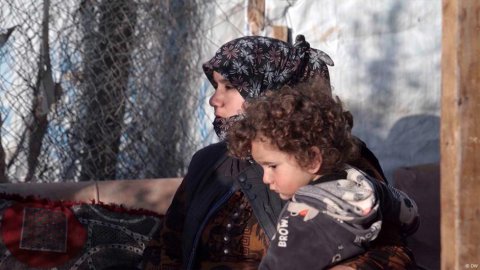Syrian Refugees Confront Difficult Choices on Homecoming
The plight of Syrian refugees has been a significant topic in the realm of immigration news, particularly as many face tough decisions regarding their return to Syria. After years of displacement due to the ongoing conflict, these individuals are now weighing the pros and cons of going back to a homeland that remains fraught with uncertainty.
The Current Situation in Syria
Syria’s situation is complex, with various regions experiencing different levels of stability. Some areas are seeing a return to normalcy, while others remain dangerous, making the decision to return even more challenging. Refugees must consider several critical factors:
- Safety: The primary concern for many refugees is their safety. With reports of ongoing violence and political instability, many are apprehensive about what awaits them upon their return.
- Reconstruction: The country’s infrastructure has been heavily damaged, and the lack of basic services can be a deterrent for those contemplating homecoming.
- Family Reunification: Many refugees have family members who remain in Syria, which complicates their decisions, especially when considering the emotional bonds and the possibility of reuniting with loved ones.
Legal and Immigration Considerations
Navigating the legal landscape can be daunting for refugees. Many are unaware of their rights or the processes involved in returning to Syria. Organizations and government agencies are working to provide guidance and support, but the complexities of immigration law often hinder progress.
For example, USCIS office locator tools can help refugees find information about their status and any potential pathways for returning home or seeking asylum in another country. Additionally, programs like humanitarian parole are in place to assist those who may not have traditional refugee status but still face perilous circumstances.
The Impact of International Policies
The policies implemented by various nations significantly impact refugees’ choices. In particular, the actions of the U.S. government, as seen with Biden’s parole in place initiative, have led to discussions around the future of immigration for those fleeing conflict. These policies can either encourage or discourage refugees from returning to their native countries.
Moreover, recent immigration reform news highlights the evolving attitudes towards refugees and asylum seekers, emphasizing the need for compassionate approaches that acknowledge their unique situations.
Community Support and Resources
Refugees often rely on community support networks to navigate their options. Organizations such as the American Business Immigration Coalition and local immigrant support groups play crucial roles in providing resources, guidance, and legal assistance.
Additionally, community initiatives, like those found in areas with high concentrations of Syrian refugees, can help ease the transition back to life in Syria or facilitate integration into new communities. These support systems are vital as they provide a sense of belonging and security, which can be invaluable during times of uncertainty.
Personal Stories of Resilience
Among the many Syrian refugees grappling with the decision to return home are individuals with harrowing personal stories. Many have faced unimaginable hardships during their time away from home, including family separations and economic struggles.
Their narratives often highlight the resilience of the human spirit and the desire for stability and peace. As they contemplate their future, their experiences shed light on the broader challenges faced by displaced populations worldwide.
Conclusion: A Difficult Choice Ahead
As Syrian refugees continue to confront the difficult choices regarding their homecoming, support from international communities, legal clarity, and humanitarian initiatives will be crucial. The decision to return is not merely a logistical one; it encompasses deep emotional ties, safety concerns, and future aspirations.
In this ever-evolving landscape of immigration, staying informed through immigration news and connecting with local resources can empower refugees in their decision-making process. Ultimately, the hope is that every individual can find a place where they feel safe, supported, and at home.










